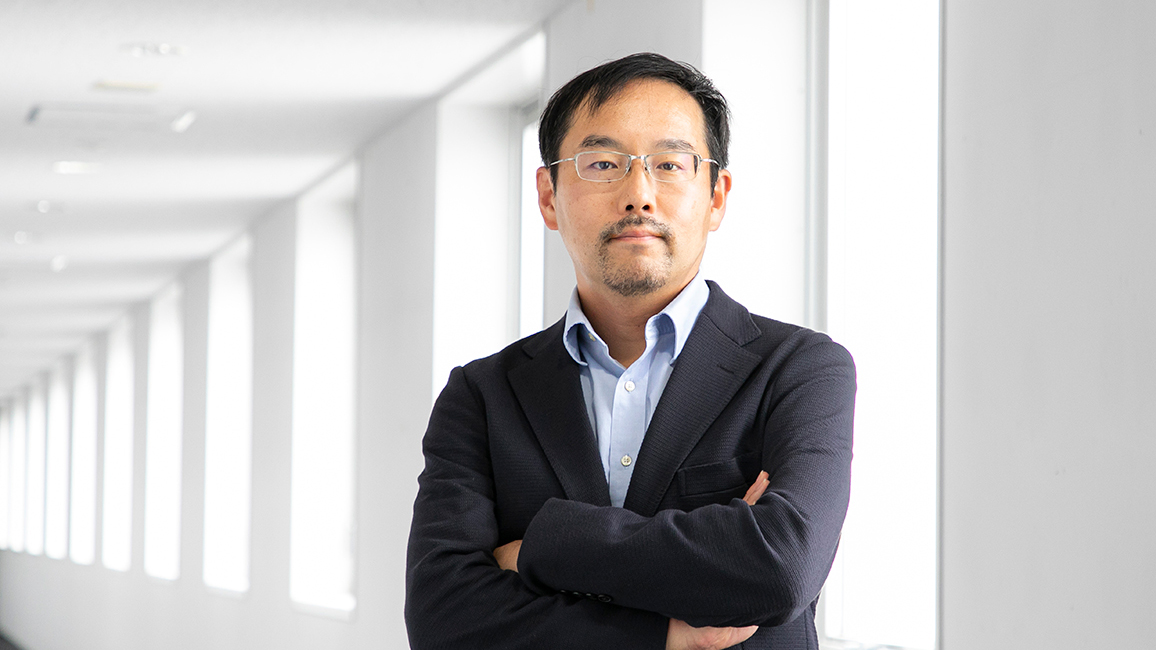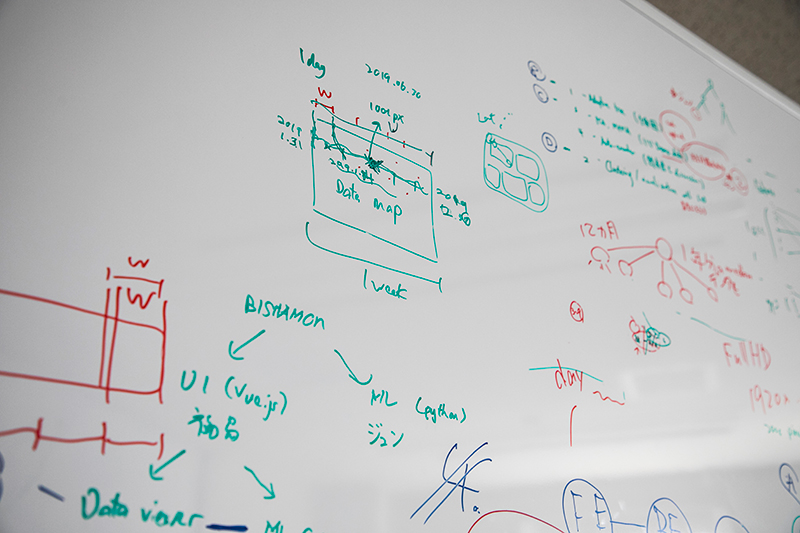- HOME
- Research at RCAST
- Visit to Laboratories
- Yairi Laboratory
Yairi Laboratory

Artificial Intelligence Research for Supporting Human Decision and Making Machines Smarter
In the Artificial Intelligence Laboratory at RCAST, we are studying artificial intelligence as a “means to enhance human intellectual capacity”, as well as a “means to make machines smarter”. Our lab has an open-minded atmosphere, which attracts students with diverse interests and who are researching a range of fields including artificial intelligence, machine learning, probabilistic reasoning, and intelligent robotics. I think our laboratory is ideal for students who can and want to learn autonomously by interacting with other members, and propose research themes from a slightly different perspective than the next person.
“Unsupervised learning” for monitoring large-scale complex systems
In our laboratory, we are researching intelligence for machines themselves and for supporting human decision making. Our current focus is on the theme of “data-driven system health monitoring.” We are applying machine learning to monitor whether large-scale and complex systems, such as industrial plants, infrastructure equipment and artificial satellites, are operating properly and efficiently.
These critical systems have conventionally been monitored for 24-hours a day by human operators or using rules defined by domain experts. By introducing into the monitoring process a type of machine learning known as “unsupervised learning”, which extracts the structures and mechanisms behind data, it will be possible to detect anomalies of increasingly complex and diverse systems at a reasonable cost. In those critical systems, it is often impossible to apply "supervised learning" techniques due to having only a few examples of the anomalies that can be used as training data. In contrast, our unsupervised learning-based approach, which learns a "normal" model from past normal data and estimates the anomaly score of future data, is applicable in situations where there is a very limited number of past anomalies.
Transition from aerospace to artificial intelligence research
It was just after the end of the second AI boom when I started studying artificial intelligence. Although people had lost enthusiasm for AI by then, it was rather a comfortable time for me because I could study what I wanted to without excessive pressure.
I originally majored in space engineering for my undergraduate degree. At that time, I hoped to be an aerospace engineer and develop rockets and artificial satellites after I graduated. Then when I proceeded to graduate school and joined the laboratory of Professor Koichi Hori, I started thinking about studying planetary rovers for unmanned space exploration. Gradually my interest shifted from the hardware to the intelligence installed in the rover. I wanted to know how the rover could recognize the surrounding environment, and plan its optimal behavior. I became fascinated with the idea of the rover’s intelligence that learns from experience and data, and I switched my focus to artificial intelligence research, which I am still involved in today.
Open-minded research lab that attracts a diversity of students
“Open-minded and independent” is how I would first describe the Artificial Intelligence Laboratory. While we sometimes ask our students for help on research projects funded by organizations such as the Japan Science and Technology Agency (JST) or collaborative research projects with companies, since the time of Professor Hori - the former head of the laboratory - it has long been a tradition that both students and staff independently study their own areas of interest. I think there are many students at our lab who work autonomously, and have a clear criteria and goals for their own research.
Problem solving is one of the most important things in engineering, and in the Artificial Intelligence Laboratory we also emphasize problem finding on top of that. In other words, the students in our laboratory are supposed to find their own area of interest and research theme; I think it is ideal if they gradually do this through discussions with the staff and other students in the laboratory.
Aside from our policy on research, I believe another attraction of the Artificial Intelligence Laboratory for students is the environment where it is located. Our laboratory is a part of RCAST, and is located in the Komaba research campus. RCAST is comprised of laboratories from a wide range of fields, which is why it is sometimes called a miniature of The University of Tokyo (UTokyo). I think we are truly fortunate to have access to the abundance of resources available at RCAST and UTokyo.
There are many career paths that students may take after graduation. As our laboratory specializes in artificial intelligence and aerospace engineering, it is no wonder many graduates go on to work in such industries as information technology and automobile, where there is a demand for engineers skilled in autonomous driving technology. But there are also students who join consulting and financial firms, and think tanks too. And these days, some students are even launching their own businesses while they are still in university. Meanwhile, some students of the Department of Aeronautics and Astronautics, who were focused on becoming pilots, have secured jobs in airline companies as pilot trainees. Anyway, these graduates of the Artificial Intelligence Laboratory have pursued their own interests and utilized their strengths to become successful in a wide range of careers.




